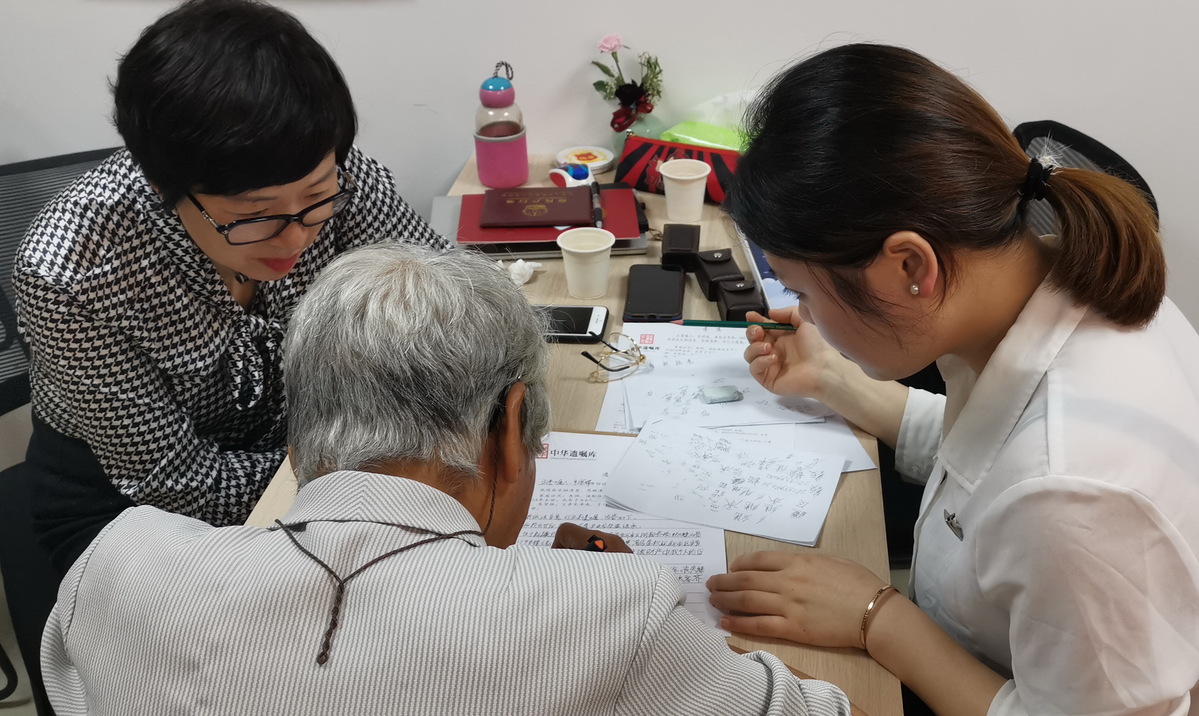Center promotes importance of making a legal will
By MAO WEIHUA/LI HONGYANG | China Daily | Updated: 2019-08-28 09:41

Zheng Xiaoyu, an 18-year-old woman in Urumqi, Xinjiang Uygur autonomous region, recently hit headlines in the city as she made a will to leave all the 10 houses under her name to her mother.
She is among the 200 people who have come to the Urumqi service center of the China Will Registration Center since it opened to the public on Friday.
According to the center, it expanded its branches from large eastern and southern cities to Xinjiang in the hope that it can benefit more people as the region's population and wealth continues to grow due to more economic policy support and other services offered by the central government.
Zheng has lived with her mother since her parents divorced. She said that if she has an accident, other relatives including her father and grandparents would inherit her legacies legally. "My mother purchased these properties through years of effort, so I can't leave them to others. A will can help me clarify the inheritance," she said.
Zhai Wei, director of the Urumqi service center, said that making a will is not unique to the elderly.
According to Zhai, just a few days ago, an internet celebrity in her 20s came to the center. Since she makes frequent business trips nationwide, she is afraid of having an accident.
"She has a number of virtual properties online and she wanted to let her parents know about them by making a will," Zhai said. "Wills can help people figure out how many properties they own and avoid disputes if they have legally binding documents."
"For those who have two houses or fewer of no more than 140 square meters and fewer than two bank accounts, we provide the service for free," she added.
The average age of those who make a will is trending lower. According to a white paper released by the center, the average age was 71.2 last year, down from 77.4 in 2013.
By June, about 145,000 wills have been deposited at the center's branches nationwide since its establishment in 2013.
The center now has 10 branches.
The center hopes that by 2024, at least 600 million Chinese can better understand the need to make wills at an early age.
























